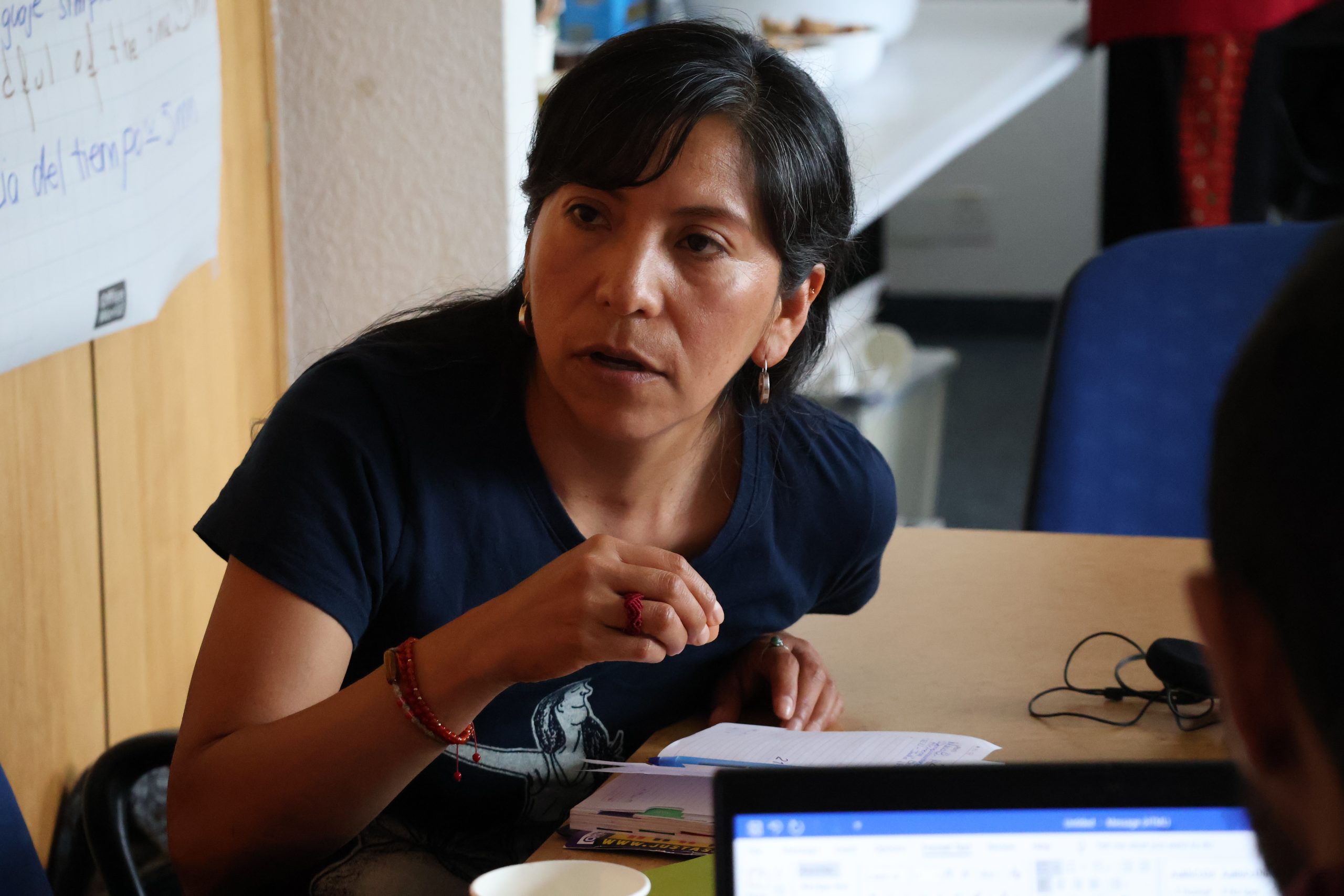
Egypt: Reform unjust vice laws, guarantee open civic space
During Egypt's UPR adoption at HRC59, Nora Noralla delivered a joint statement on behalf of ISHR, Cairo 52 and Middle East Democracy Center. Watch and read the full statement below.
Photo: ISHR

Nazifa Jalali, along with ISHR, called on UN Member States to establish a mandated investigative mechanism to contribute towards accountability for the Taliban's human rights violations, and for States to continue to support Afghanistan’s human rights movement.
The statement made on 29 February during the interactive dialogue with the Special Rapporteur on Afghanistan, Richard Bennett, commended the Special Rapporteur’s mandate which is instrumental in ensuring regular monitoring of the human rights situation in the country, and his report on the collapse of civic space, resulting from systematic and targeted arbitrary arrests and detention and self-censorship.
Despite noting some progress, assisted by Bennett, with some Afghan human rights defenders arbitrarily detained being released, the statement reminded the Council that many urgent cases remain, such as that of Rasoul Parsi Abdi. The statement called on States to protect human rights defenders from the Taliban’s rights violations, asking all States to continue to support, both politically and financially, the Afghan human rights movement and their long-term security.
The statement was clear in expressing concern about any reintegration of Afghanistan into the international community, stating that: ‘Human rights benchmarking should not lead to the legitimisation of the Taliban until there are measurable improvements of their respect for international human rights norms and standards, as well as a meaningful accountability process’.
The statement ended by calling for the establishment of a Human Rights Council-mandated mechanism to engage deeper into investigations and collection of evidence to contribute towards accountability for the Taliban. ‘There cannot be an inclusive and stable Afghanistan without justice and accountability’.
Jalali made the statement in the lead-up to a week of activities with women human rights defenders from Afghanistan, including a workshop for Afghan women defenders on UN Mechanisms, as well as a consultation with the Special Rapporteur on Afghanistan to feed into his upcoming report on ‘the phenomenon of an institutionalised system of discrimination, segregation, disrespect for human dignity and exclusion of women and girls’.
The statement also built on a joint submission made to the Universal Periodic Review of Afghanistan by WILPF and ISHR, which drew urgent attention to the ongoing gender persecution in Afghanistan by the Taliban, and the institutionalised framework of gender apartheid. Learn more about the Gender Apartheid Campaign here.
That same week the world celebrated International Women’s Day, during which Afghan women human rights defender Sonia Ahmadi said: ‘Afghan women epitomise courage, resilience, and unwavering determination amidst unparalleled discrimination and adversity. Despite facing systematic barriers, they continue to dream, hope and uplift their communities. Their voices are not only crucial but imperative to be included in every sphere’.

During Egypt's UPR adoption at HRC59, Nora Noralla delivered a joint statement on behalf of ISHR, Cairo 52 and Middle East Democracy Center. Watch and read the full statement below.

At the Human Rights Council, Belgium delivered a statement on behalf of over 60 States that 'pays tribute to the numerous achievements and meaningful progress made by women and girls human rights defenders, and emphasises the continued need for their voices to be heard and supported'.

The 59th session of the UN Human Rights Council (16 June to 9 July 2025) will consider issues including civil society space, climate change, sexual orientation and gender identity, violence and discrimination against women and girls, poverty, peaceful assembly and association, and freedom of expression, among others. It will also present an opportunity to address grave human rights situations including in Afghanistan, Belarus, China, Eritrea, Israel and oPt, Sudan, Syria and Venezuela, among many others. Here’s an overview of some of the key issues on the agenda.